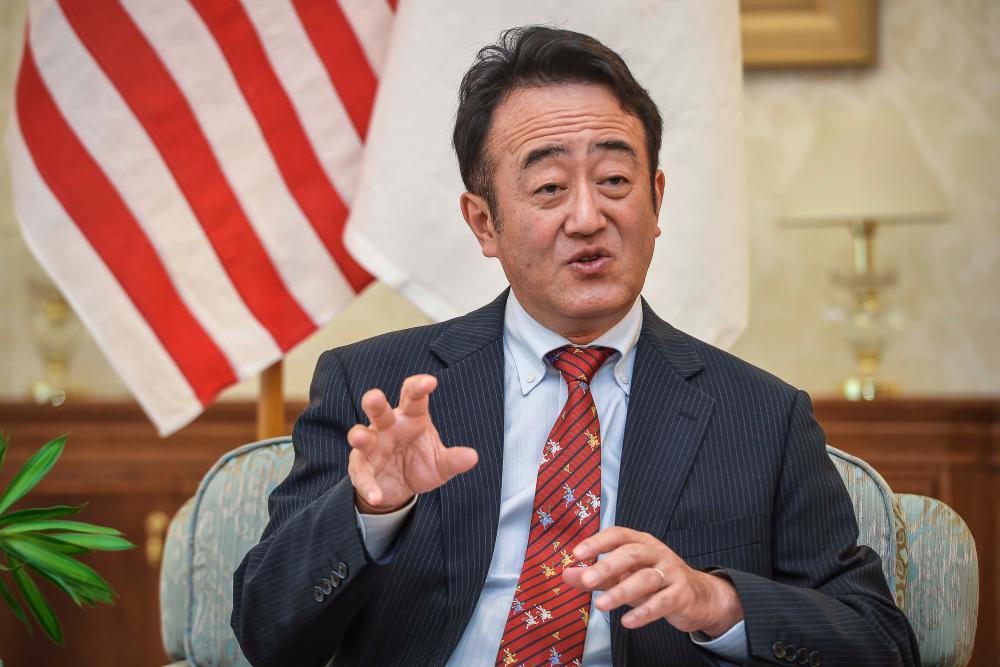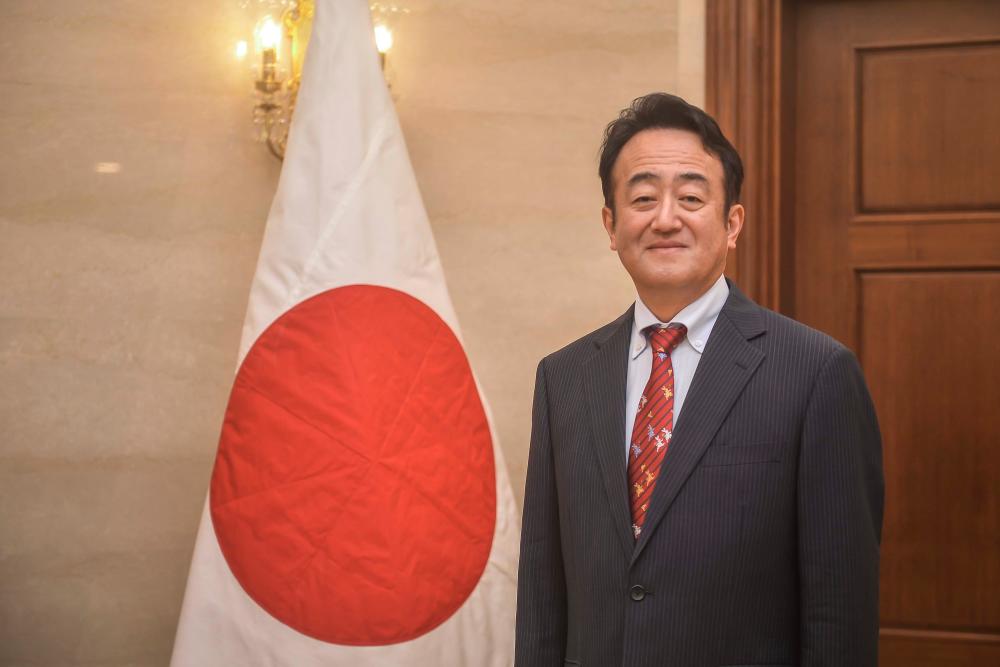As the 47th Bon Odori Festival will take place very shortly, Japanese Ambassador H.E. Takahashi Katsuhiko spoke exclusively with theSun on the origins of the festival and its transformation within Malaysia.
Leveraging on his diplomatic duty and responsibility, Takahashi used the opportunity to clear the air over the festival, presumably due to how the event garnered controversy last year to due certain misunderstandings.
To first understand the Bon Odori Festival in Malaysia, perspective has to change to look at the bigger picture; traditionally, bon odori is a dance performed during the Obon Festival.
At its conception hundreds of years ago, Takahashi explained that the Japanese people believed that the souls of their ancestors would come back to visit their communities once a year.
“In the middle of August, these communities would begin to prepare the event to welcome the souls of the ancestors. This is the start of the gathering period called ‘Obon’. As these gatherings created a lot of interactions and cultural activities, it developed into the Bon Odori Festival,” the Ambassador said.
Due to the differences in each community, there are various types of bon odori dances and songs. In a way, these helped to develop and retain each community’s cultural identity. Knowing this part is imperative in understanding the festival in Malaysia.
A cultural exchange
“In Malaysia, Bon Odori began in Selangor in 1977. At the beginning, it was a small thing conducted by [Japanese expatriate parents] for their schoolgoing children. But then Malaysians started to notice what they were doing, and began to participate,” Takahashi elaborated.
“The Japanese community [living] in Malaysia are treated by Malaysians well, so we can enjoy Bon Odori together, rather than make it an exclusive event only for the Japanese”.
Takahashi also claims that senior Malaysians have good memories of the Bon Odori Festival from their childhoods.
As such, the transformation comes to completion; what was once an ancestral tradition in Japan, the Bon Odori Festival in Malaysia has instead come to signify the bond between Japan and Malaysia.
In Malaysia, there exists a Malay word called “silaturahim”, which essentially means the bond found in friendships and communities.
The Bon Odori Festival is one such symbol of silaturahim.
For the 47th Bon Odori Festival that will take place in Kompleks Sukan Negara Shah Alam on July 22, the stalls that are set up outside of the dancing area are by Japanese companies and Japanese-related companies offering foods and activities.

Boons of a prospective future
The Bon Odori Festival is part of Japan’s many “exports” to Malaysia, in both countries’ 66-year long bilateral relationship.
“In trade and investment, Japan is one of the major partners with Malaysia; there are now 1,600 companies investing in Malaysia,” Takahashi explained.
The Look East Policy that began 41 years ago has also enhanced people-to-people exchange.
“So, the economy is booming, culture is booming, and everyone expects more to happen. Therefore, our work becomes how we can broaden the spectrum of cooperation and make it stronger,” he answered, in response to where the relationship between both countries will go in the future.
“One such area is academia”.
Takahashi pointed out that Japan is working with the Malaysian government on the establishment of the University of Tsukuba in Malaysia.
“If the university opens a campus here, it will be the first Japanese university to open a branch abroad. Malaysia would be the first location in the world,” the Ambassador explained.
The choice to open Japan’s first university abroad, particularly in Malaysia, is a historic one, and Takahashi points out that it is the first of many more to come in the future.
Market expansion
On July 25, Takahashi will be hosting a private sake event, which he briefly touched on during the interview.
The event will see over 40 sake makers from all over Japan converge in one location, providing an opportunity for around 100 or so guests invited by Takahashi to taste, compare and network with each other.
This is due to the Ambassador seeing a potential for Malaysia to be a big sake market, on par with France.
“I want to set up an opportunity for sake lovers to compare, because this can’t be done going to a restaurant. Comparison teaches us a lot,” he said.
According to Takahashi, these events are rare outside of Japan, and it is the first one in Malaysia.









